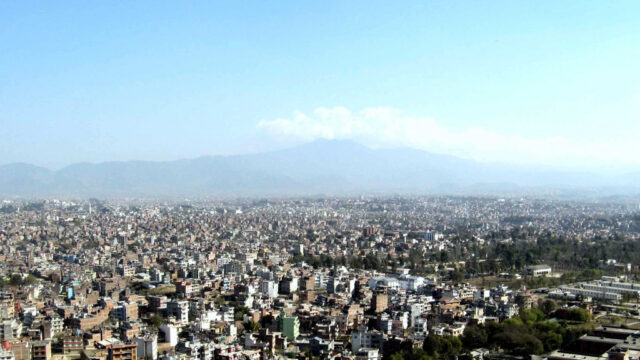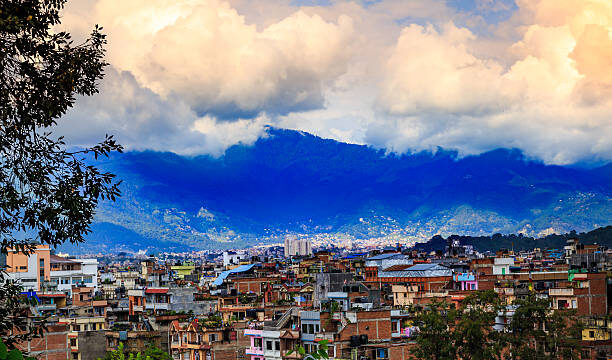Every year on June 5th, the world comes together to celebrate World Environment Day, a global platform for raising awareness about environmental issues and promoting positive actions for the planet. Spearheaded by the United Nations Environment Programme (UNEP), this day is more than just a symbolic occasion, it serves as a call to action for governments, organizations, communities, and individuals to work together in safeguarding the natural world. In 2025, as we grapple with escalating climate challenges, deforestation, and pollution, the role of tourism in environmental conservation has become more significant than ever.
Tourism, often viewed as a double-edged sword, holds immense potential both as a contributor to environmental degradation and as a powerful tool for sustainable development. On this World Environment Day, it is crucial to reexamine the intersection between environmental stewardship and tourism, especially in a country like Nepal where natural beauty, biodiversity, and cultural heritage attract millions of visitors annually.
Nepal, nestled in the lap of the Himalayas, offers some of the world’s most spectacular landscapes, from the towering peaks of Mount Everest and Annapurna to the serene lakes of Pokhara and the lush jungles of Chitwan National Park. These natural wonders are not just tourist attractions, they are ecological treasures that need protection. World Environment Day serves as a vital reminder that preserving these destinations is essential for sustaining tourism in the long term. As tourism grows, so does the pressure on fragile ecosystems.
From unmanaged waste in trekking routes to carbon emissions from increased transportation, the environmental cost of tourism can be high if not properly managed. It is here that the concept of sustainable tourism becomes crucial. Sustainable tourism seeks to minimize the negative impacts of travel while maximizing the benefits for local communities, economies, and environments.

The theme for World Environment Day often varies each year, but the overarching message remains the same: to protect and restore our planet. This theme aligns perfectly with the goals of eco-tourism and responsible travel practices. For example, community-based tourism in places like Ghale Gaun, Ghandruk, and Tansen allows tourists to immerse themselves in local cultures while ensuring that the environmental footprint remains low.
Homestays and local tour operators in these regions are increasingly adopting eco-friendly practices, such as using solar energy, encouraging waste segregation, and limiting plastic use, thereby aligning tourism with environmental protection. These small but impactful efforts contribute to preserving biodiversity, maintaining clean environments, and educating travelers on the importance of environmental responsibility.
The tourism industry also plays a crucial role in raising awareness about conservation. National parks and wildlife reserves, such as Sagarmatha National Park and Bardiya National Park, often integrate conservation education into the tourist experience. Guided tours not only showcase Nepal’s rich biodiversity but also highlight the importance of protecting endangered species like the red panda, snow leopard, and Bengal tiger.
On World Environment Day, many tourism organizations organize special activities such as tree-planting campaigns, clean-up drives, and eco-workshops to engage both tourists and locals in environmental protection. These actions not only serve as direct conservation efforts but also create a sense of responsibility among participants, turning them into ambassadors for the environment even after their trip ends.

Moreover, tourism can be a powerful economic incentive for conservation. When local communities benefit financially from preserving the environment, they are more likely to engage in sustainable practices. For instance, trekking permits and park entry fees contribute to conservation funds that support wildlife monitoring, habitat restoration, and waste management.
In this way, responsible tourism becomes a driver for environmental sustainability, aligning economic development with ecological preservation. On this World Environment Day, it is important to highlight how investment in sustainable tourism infrastructure, such as eco-lodges, renewable energy transportation, and green-certified accommodations, can lead to long-term gains for both people and the planet.
Technology also plays a significant role in merging tourism with environmental efforts. Digital platforms are now being used to promote eco-friendly destinations, educate travelers, and manage tourist flow to prevent over-tourism. For example, mobile applications and websites provide guidelines on responsible trekking, list sustainable service providers, and offer real-time information on environmental conditions.
By using such tools, tourists can make more informed decisions that align with the values of World Environment Day. In Nepal, initiatives like Visit Nepal Year and the Sustainable Tourism Strategy by the Ministry of Culture, Tourism and Civil Aviation emphasize the need to integrate digital innovation with green tourism development.

However, challenges remain. Many tourism hotspots in Nepal still lack proper waste disposal systems, and awareness about environmental protection is low among some operators and visitors. To address these gaps, collaboration is essential. Government agencies, private sectors, civil society, and tourists must come together to implement policies that prioritize environmental health.
World Environment Day is an opportune moment to launch new policies, reward green tourism initiatives, and encourage public-private partnerships for conservation. Incentives such as tax breaks for eco-friendly hotels or certification programs for green trekking guides can push the industry toward sustainability.
World Environment Day is not just an annual observance, it is a global movement that resonates deeply with the principles of sustainable tourism. As travelers continue to explore Nepal’s breathtaking landscapes and rich heritage, the responsibility to protect and preserve these environments becomes even more critical.
By embracing eco-conscious travel, supporting local communities, and promoting environmental education, the tourism sector can become a force for good. This World Environment Day, let us commit to making tourism in Nepal, and across the world, a greener, cleaner, and more sustainable journey for all.





